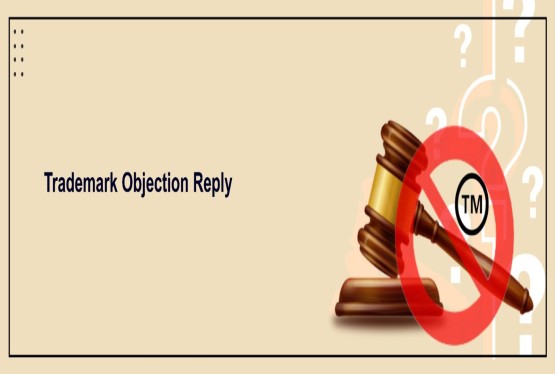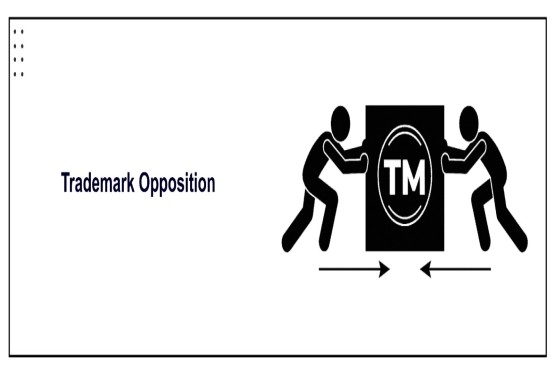An exciting link between sports celebrity and intellectual property law, former captain of the Indian cricket team Mahendra Singh Dhoni has recently submitted a trademark application to secure exclusive rights over the well-known nickname ‘Captain Cool’. This name, long linked to Dhoni’s calm conduct and strategic expertise on the field, has evolved from a mere casual reference to a recognizable emblem of his character and leadership legacy. The trademark application represents more than just a simple branding effort; it demonstrates a strategic legal move to establish exclusive rights over a personal identifier that has gained significant commercial value and public recognition.
The Trademark “Captain Cool”, bearing Application No. 5966261 under Class 41, was initially advertised in the Trade Marks Journal No. 2213-0 dated June 16, 2025. Section 11(1) (likelihood of confusion with existing marks) of the Trade Marks Act, 1999. Additionally, a formal trademark opposition has been filed by Advocate Nilanshu Shekhar and Ashutosh Chaudhary of KAnalysis Attorney of Law, representing an earlier user of a similar mark, challenging the distinctiveness of "Captain Cool" and alleging procedural lapses, such as amendment of the usage claim without supporting evidence and bypassing prior citations. The matter is currently under review by the Registry of Trademarks, and both parties are expected to submit evidence in support of their claims as per the procedure laid down under Section 21 of the Trade Marks Act.
Protecting distinctive elements of an individual's identity, such as a name, voice, likeness, or in this case, a nickname, is becoming a more important component of maintaining a personal brand and preserving intellectual property in the age of celebrity entrepreneurs and digital monetization. This situation also underscores the importance of the Trade Marks Act, 1999, in protecting marks that have developed a secondary meaning in the eyes of the public, raising important questions about how far trademark protection extends to nicknames used by public figures. It serves as an example of how individuals with substantial public influence are using legal tools to control, license, and profit from their identity markers, while also preventing unauthorized commercial use.
Dhoni’s trademark filing not only aims to strengthen his brand value but also reflects a broader trend of Indian celebrities becoming more aware of intellectual property rights and aligning with international standards set by stars like Dwayne "The Rock" Johnson and athletes like Cristiano Ronaldo, also known as "CR7." For legal professionals, trademark agents, and brand managers, staying updated on the evolving legal landscape related to personality rights and brand protection in India is crucial, making this application particularly significant.
Who is Captain Cool?
Popularly known as "Captain Cool" is more than just a casual nickname it represents Mahendra Singh Dhoni's leadership style and personality as the former captain of India's cricket team. From leading India to victory in the 2007 ICC T20 World Cup, the 2011 ICC Cricket World Cup, and the 2013 Champions Trophy, to making brave and trailblazing decisions on the field, Dhoni's leadership was characterized by clear strategy, patience, and emotional control. Recognized for his exceptional mental balance under pressure, Dhoni's calm and solid presence during some of cricket's most strong moments earned him this nickname from fans and the media alike.
The nickname became widely used not just in sports commentary and among fans, but also in branding, merchandise, and online content, giving it significant commercial value and recognition. These qualities helped build a unique image for him, setting him apart from other sports stars known for their assertive or flashy styles. Over time, "Captain Cool" became a symbol of reliability, discipline, and success. Legally, when a nickname like this becomes strongly associated with a specific individual and is widely recognized, it can gain distinctiveness and secondary meaning, making it eligible for trademark protection under the Trade Marks Act of 1999. Dhoni’s effort to register "Captain Cool" as a trademark is a logical move to safeguard a title that, although originally informal, has now become a key part of his public image and personal brand.
Opposite Party raised the Opposition against the Trademark Application
Mahendra Singh Dhoni, the former captain of the Indian cricket team, recently filed a trademark application for the nickname “Captain Cool” to gain exclusive commercial rights over the widely recognized moniker. A Delhi-based intellectual property law firm submitted a formal notice of opposition challenging Dhoni’s trademark application. Their primary argument is that the phrase “Captain Cool” is not exclusive to Dhoni, having been widely used in various contexts, including for other athletes. They contend that the term is inherently descriptive and lacks the distinctiveness required for trademark protection.
The opposition to MS Dhoni's trademark application for "Captain Cool" was based on the grounds that the term is generic and widely used in sports to describe calm leadership, lacking distinctiveness or exclusive association with Dhoni. The opponents argued that no concrete evidence of commercial use since 2008 was provided, and procedural lapses occurred at the Trademark Registry, including failure to address a prior pending application for the same mark. They claimed Dhoni’s fame alone is insufficient for trademark protection without proof of acquired distinctiveness.
In response, Dhoni’s legal team is expected to file a reply with supporting evidence, such as news coverage, promotional materials, endorsement deals, and merchandise that have prominently used the term “Captain Cool” in a commercial context. This evidence would be critical in demonstrating that the public associates the term specifically with Dhoni in a brand or business sense, rather than as a general nickname.
Ultimately, whether Dhoni secures trademark protection for “Captain Cool” will depend on the strength of his response and evidence. The case could set a significant precedent in personality rights and trademark law, particularly for celebrities seeking to commercialize elements of their public identity.
Difference between Objection and Opposition in the context of “captain cool” trademark application
|
Aspect |
Objection |
Opposition |
|
Raised By |
Trademark Examiner (Registry) |
Third Party (e.g. Individual, Company and law firm) |
|
Stage |
Before publication in Trademark Journal |
After publication in trademark journal |
|
Purpose |
To ensure compliance with trademark laws before registration |
To challenge the trademark’s validity or ownership |
|
Grounds |
Legal/procedural issues like descriptiveness, similarity |
Conflict with existing rights, generic term, bad faith, etc. |
|
Who can file |
Only the Trademark Office |
Any person or legal entity |
|
Response Needed From |
Applicant (to overcome the objection) |
Applicant (to counter the opposition) |
|
Captain Cool Case |
No public record of trademark objection |
KAnalysis filed an opposition over generic use and procedure |
Legal Perspective: Trademarking a Nickname
Can a nickname be safeguarded under trademark legislation? Does the law acknowledge informal identifiers such as nicknames or sobriquets as intellectual property?
According to the Trade Marks Act of 1999, the answer is affirmative provided the nickname has gained distinctiveness and is utilized or intended for use in the course of trade. In the instance of ‘Captain Cool’, the term transcends mere description it has transformed into a significant emblem of Mahendra Singh Dhoni’s identity, widely acknowledged across media, merchandise, and fan culture. However, is that sufficient? For a nickname to be eligible for registration, it must full fill specific legal requirements: is it capable of graphical representation? Does it distinctly differentiate the applicant's goods or services from those of others? And crucially, is it devoid of generic or misleading elements? If a nickname full fills these conditions and has acquired secondary meaning as evidenced by prominent examples like ‘King Kohli’, ‘The Rock’, or ‘CR7’ it qualifies for trademark protection. By applying for ‘Captain Cool’, Dhoni is not merely asserting his proprietary rights over the phrase but also proactively protecting against misappropriation or dilution of his personal brand. Legally, this action represents a prudent intellectual property strategy converting personal fame into a legally enforceable commercial asset with enduring value.
Business Implication for MS Dhoni
Trademarking “Captain Cool” carries significant business implications for Mahendra Singh Dhoni that extend well beyond mere legal protection. As a sports icon with a legendary IPL career at Chennai Super Kings, a portfolio of high-value endorsements, and a growing footprint in entrepreneurial ventures, Dhoni has built a brand persona that resonates deeply with fans and consumers alike. Securing exclusive rights over the nickname “Captain Cool” empowers him to commercialize the term across multiple Services sectors—ranging from apparel, lifestyle products, and sports merchandise to digital content, NFTs, gaming, and branded experiences. This legal ownership safeguards the nickname from unauthorized use, a growing concern in today’s influencer-driven economy where public figures often face image exploitation without consent. With the trademark in place, Dhoni can initiate infringement proceedings against counterfeiters or entities misusing the term for commercial benefit. It also opens up opportunities for brand licensing, merchandise collaborations, and franchising under the “Captain Cool” label, particularly in youth-centric and sports-related markets. The trademark adds to Dhoni’s portfolio of intellectual property assets, increasing his leverage in negotiations and expanding his brand’s commercial sustainability even post-retirement. As a recognized and protected brand identity, “Captain Cool” reinforces customer trust, strengthens brand recall, and enhances Dhoni’s control over how his persona is marketed and monetized across industries.
Reactions from Fans & Industry
Both the fan base and the business sector have expressed great interest, admiration, and conversation in response to MS Dhoni's announcement that he has filed for a trademark for the phrase "Captain Cool." For supporters, the action serves to further cement Dhoni's lasting legacy as a legend whose cool leadership and collected demeanour permanently altered Indian cricket, in addition to his legacy as a cricket player. The moniker "Captain Cool" rightfully belongs to Dhoni and no one else, according to many who flocked to social media to express their pleasure, pride, and nostalgia. The trademark filing is being praised as a wise and calculated move by the legal and business communities. Intellectual property law experts have highlighted how Dhoni's action establishes a clear precedent for Indian athletes to aggressively safeguard and market their personal brand assets. In a time when name, image, and likeness rights are becoming more and more important in the marketplace, Dhoni's action shows legal understanding and marketing foresight Brand managers and marketing experts have also pointed out that Dhoni is well-positioned for future endeavours as a result of this decision. Whether starting a sports academy, lifestyle brand, or exclusive retail line, being the owner of "Captain Cool" offers a distinctive edge in a congested industry driven by endorsements. Given Dhoni's growing involvement in entrepreneurship and strategic investments, business analysts view it as a logical progression of his brand evolution. All things considered, the file has been well received by all parties involved. While the legal and business communities see it as a model case of celebrity brand governance in contemporary India, fans perceive it as a legitimate claim to his name.
Conclusion
The decision by MS Dhoni to trademark his well-known moniker "Captain Cool" is a turning point in the changing dynamic between intellectual property rights and celebrity identification. What started out as a fan-given moniker has now evolved into a legally protected brand asset, demonstrating both Dhoni's vision and the increasing recognition among public personalities of the legal and financial benefits of personal branding. Obtaining exclusive rights over names, images, and reputations is now necessary in a time when these identifiers are becoming more and more commercialized. This trademark is more than just a legal need for Dhoni; it is a calculated step to safeguard his reputation, open up new financial prospects, and establish authority over the story and application of his public persona. Additionally, it establishes a strong precedent for other Indian athletes and celebrities to do the same, treating their reputation as a valuable intangible asset that should be protected. In the end, Dhoni's decision to file "Captain Cool" as a trademark shows that he understands that brand value only changes with retirement and that the composed cricket player is just as astute in the business and legal spheres.
We make the Trademark registration process easy, fast, and reliable.
Call or WhatsApp us at +91-9988424211 Or write to info@ccoffice.in for a quick consultation.






























_(b)_of_the_Trademark_Act,_1999_(1)_crop10_thumb.jpg)



_crop10_thumb.jpg)




























_crop10_thumb.jpg)
_crop10_thumb.jpg)






_crop10_thumb.jpg)








_crop10_thumb.jpg)



_crop10_thumb.jpg)





























_crop10_thumb.jpg)

















_crop10_thumb.jpg)






_crop10_thumb.jpg)












































































































































_crop10_thumb.jpg)




































_crop10_thumb.jpg)












_crop10_thumb.jpg)















































_crop10_thumb.jpg)







































































































